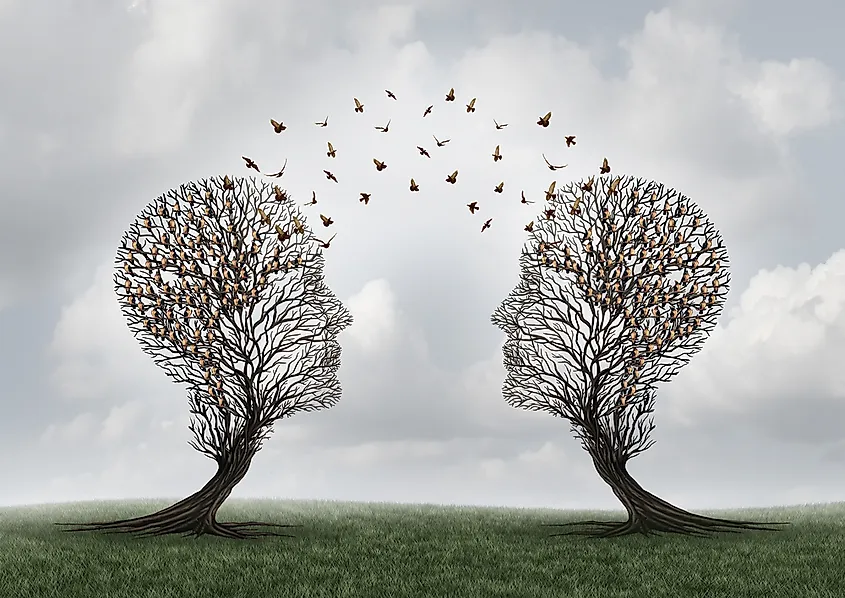What Is The Hedgehog's Dilemma?

- The Hedgehog dilemma questions the nature of human behavior that involve problems that arise with intimacy.
- Freud used the Hedgehog dilemma to explain the traits of our ego and our need for isolation.
- Winters would be a lot easier for hedgehogs if they had any blankets.
In philosophy, the hedgehog dilemma refers to a specific question, which humans often find hard to cope with: does harm come with intimacy? Also known as the porcupine dilemma, this philosophical concept tells us about the complexity of human relationships, whether we are talking about family, friends, or love and life partners.
This metaphor first made its way into the world of psychoanalysis with combined efforts of Arthur Schopenhauer and Sigmund Freud. In his book, Parerga und Paralipomena, Schopenhauer discussed the idea of how staying outside of relationships would get nobody hurt. Freud used a similar approach in his discussions on ego and the human’s need for isolation.
Freeze Or Bleed?
The analogy for problems that arise when two or more people start getting close to each other is the hedgehog dilemma. Imagine a group of hedgehogs, freezing during wintertime, figuring out a way how to keep themselves warm. They come closer together, to transmit the body heat from one another. Still, at the same time, something they can not get rid of makes the situation impossible, or at least very dangerous. As the hedgehogs pile up and try to get warm, their spikes come out, which hurts other members of the cute hedgehog pile.
The Less I Know, The Better
Sorry about the blatant Tame Impala reference, but sure you have heard people using the quote above in different situations. This is not your simple ‘’ignorance is bliss’’ type of thinking, but speaks more about the way human relationships both develop and end.

This concept raises many questions, but most of them revolve around the nature of humans. In varying degrees, our behavior is not only a product of our genome but of other cultural and social factors that shape it. What is it about intimacy, then? Is this really the case - the more you get to know someone, the more likely one (or more) of you will get hurt by the inability to solve problems?
Well, the common sense answer would be: yes - the more you are emotionally involved in a relationship, the chances of you feeling hurt after unfortunate events are more likely to occur. However, this is not a one-way street. When hedgehog’s spikes come out, everyone is pricked, poked, and bleeding.
Can We Truly Trust Someone?
This is a school example of what a dilemma is - the hedgehog analogy explains what humans intrinsically want and need, and how they calculate (or they do not) the risk factor of going into a relationship. The benefits and happiness that come when you start to know someone ‘’as a person’’, quickly dethrone the thoughts about an unfortunate outcome of such activity.
All of these explanations seem to follow one line. Human relationships need to develop based on trust, and that can be achieved if you, colloquially speaking, let your guard down. But, the same way as a hedgehog pulls out his spikes, humans pull out their defensive mechanisms. Once people start defending, from nothing more than a feeling of closeness, that is when both sides get hurt. To answer the question right above - it is probably impossible to develop complete trust. Still, the very fact that people try to do so is the one that most likely makes us human.











